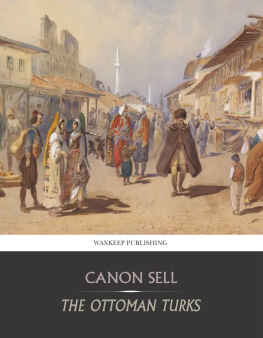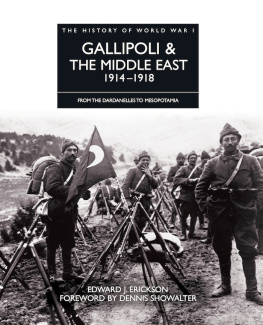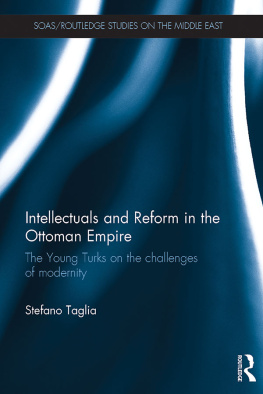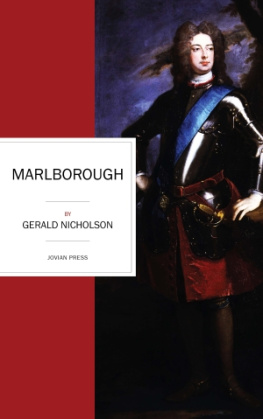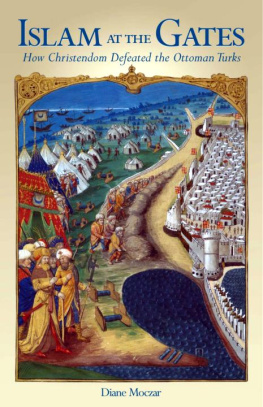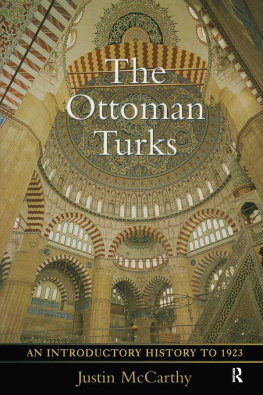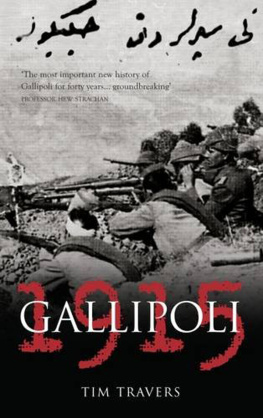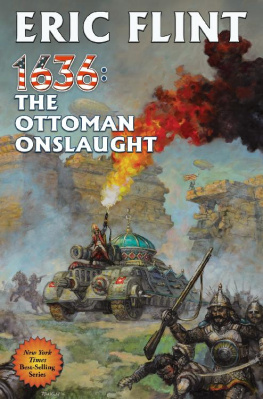Canon Sell - The Ottoman Turks
Here you can read online Canon Sell - The Ottoman Turks full text of the book (entire story) in english for free. Download pdf and epub, get meaning, cover and reviews about this ebook. publisher: MIT, genre: Non-fiction. Description of the work, (preface) as well as reviews are available. Best literature library LitArk.com created for fans of good reading and offers a wide selection of genres:
Romance novel
Science fiction
Adventure
Detective
Science
History
Home and family
Prose
Art
Politics
Computer
Non-fiction
Religion
Business
Children
Humor
Choose a favorite category and find really read worthwhile books. Enjoy immersion in the world of imagination, feel the emotions of the characters or learn something new for yourself, make an fascinating discovery.
- Book:The Ottoman Turks
- Author:
- Publisher:MIT
- Genre:
- Rating:4 / 5
- Favourites:Add to favourites
- Your mark:
- 80
- 1
- 2
- 3
- 4
- 5
The Ottoman Turks: summary, description and annotation
We offer to read an annotation, description, summary or preface (depends on what the author of the book "The Ottoman Turks" wrote himself). If you haven't found the necessary information about the book — write in the comments, we will try to find it.
The Ottoman Turks — read online for free the complete book (whole text) full work
Below is the text of the book, divided by pages. System saving the place of the last page read, allows you to conveniently read the book "The Ottoman Turks" online for free, without having to search again every time where you left off. Put a bookmark, and you can go to the page where you finished reading at any time.
Font size:
Interval:
Bookmark:
AMONGST THE NUMEROUS NOMAD RACES of Central Asia there were two great tribesthe Mongols and the Turkswho in the thirteenth century overran a great part of the Muslim empire and penetrated beyond it. Hulagu Khan captured Baghdad, the seat of the renowned Abbasid Khalifate and the Mongols soon overran the Syrian empire of Saladin, which had come now under the rule of the Mamluk Sultans of Egypt. The Mongols on different occasions made several ineffectual attempts to invade Egypt, and were repulsed by the bravery of the Mamluks; but they entered Europe and advanced as far as Hungary. They were nomads and, as a rule, could not settle down; so after ravaging a country they usually retired from it. For a time, however, they retained possessions in China, and, as the Golden Horde, ruled in the Crimea; but they left no permanent mark on the Muslim empire of the Khalifate; and so we may pass them by.
The other branch of these great nomad barbarians, the Turks, did otherwise. They supplied the Khalifas of Baghdad with mercenary troops who soon became the rulers of their nominal masters. As imported slaves they attained also to royal power in Egypt. They founded a dynasty at Ghazni and captured Khurasan where they created the empire, the Seljuk Turks. Then came the great Mongol invasion under Chengiz Khan driving the Turks further south and west. Their clans under the names of the White and Black Weir (sheep) exercised much influence in the thirteenth century.
The Muslim empire at that time had almost passed away from its old Arab rulers. The Mongols had subdued Persia and advanced to the regions of the Volga and the Ural mountains, whilst Turks ruled in Asia Minor and Turkish Mamluks held Egypt. Against these two Turkish powers the Mongols could do nothing. The Seljuk Sultans of Iconium and the Mamluks of Egypt held their own and remained when all fear of the Mongols had passed away. Amongst the tribes which followed the Seljuks was one which was led by its chief Ertoghul. It so happened that one day Ertoghul was proceeding with a small band of men in the direction of Anatolia, where he unexpectedly came upon a battlefield (Angora) in which the Seljuk Sultan was contending against a strong and determined foe. At once Ertoghul and his four hundred men joined in the conflict and helped to gain a victory for the Seljuks. On another occasion also they rendered valuable military assistance. The Sultan in return for this welcome aid allowed them to settle on land where good pasturage and suitable winter quarters were found. This was in the neighborhood of Angora and not far from the boundaries of the Byzantine province of Bithynia.
In 1258, the year in which Baghdad fell, Uthman, the son of Ertoghul, was born. In due course he asserted his absolute independence, and founded the dynasty of the Uthmanulis, or as they are better known, the Ottoman Turks. With them our history begins. Thirty-five Sultans of the Ottoman Turks have succeeded Ertoghul in the male line without a break.
Ertoghul died in 1288 and Uthman became head of the clan; in the same year O rkhan, son of Uthman, was born. The years of the earlier manhood of Uthman had been peaceable ones, during which he established a reputation for administrative ability and for justness in his rule. In the beginning of the fourteenth century the Seljuk empire which was split up into ten states had begun to fall into decay. Many of its feudatory vassals aspired to independent rule over domains of their own. Uthman remained firm in his allegiance and as a reward, in 1295, the Seljuk Sultan Alaud-din Kaikobad II made him a ruler over a territory he had that year conquered, and presented him with the horse-tail, drum and banner, which were the insignia of independent rule. His name was now inserted in the Friday prayers. The date 1295 may be considered to mark the beginning of the Ottoman empire. Gradually, however, the Ottomans began to absorb the domains of the Seljuks, but the process was not completed till some years after Uthmans death. When the Seljuk dynasty had become extinct, there was no power left sufficiently strong to curb the ambition of the Ottomans, though the stronger among the ten states which arose out of the Seljuk empire successfully resisted them for a time.
The Ottomans now turned their attention to the easier work of invading the neighboring Christian lands, and the conflict with the Greek emperor began in earnest. The inroads were frequent and each campaign attracted volunteers to Uthmans service and increased the number of his captives. As the Mongols had so frequently done, he did not after such forays return to a pastoral life, but fortified the places he had captured and so showed his intention of remaining in the newly conquered territory. After years of warfare, the city of Brusa was captured in 1326. Uthman was now in his last illness, but he lived long enough to know that his standard had been [planted in the city he had so long wished to capture, and which now became the capital of his growing kingdom. He was buried within its walls. He was the real founder of the Ottoman empire and each successive Sultan is girded with the sword of Uthman, preserved in Constantinople for that purpose.
Uthman was succeeded by his son Orkhan (1326-59). The Christian inhabitants of Brusa
were spared their lives on payment of a ransom of thirty thousand crowns of gold. A mosque and a college were built, and Arabic and Persian scholars of repute were invited to the city which now became the capital of the Ottomans.
Uthman had two sons Alaud-din and Orkhan. The latter, though the younger son, became the ruler on account of his martial vigor. Having established himself at Brusa, he paid little attention to the smaller states which had arisen in Asia out of the late Seljuk kingdom, preferring to attract the members of them by the superior organization of his own territories and by victorious campaigns against the Greeks, which in due time he undertook. At first, he directed his time and energies to the capturing of the Greek strongholds in Asia. In a few years Nicomedia, Meacea and Pergamos were added to his dominions, and after the defeat of the emperor Andronicus the Ottoman kingdom extended to the shores of the Hellespont, and the Byzantines retained in 1338 only two townsAla Shair and Rega. Orkhan behaved well to the people of the conquered cities. When Meacea was taken, the people were allowed to retire with all their goods; an act of clemency which won the admiration of the Greeks for their conqueror.
Having thus gained control of the whole of the north-west corner of Asia Minor and the command of one shore of the Bosphorus, Orkhan was content to rest for a while. He now saw clearly that the conquest of the Byzantine empire would be arduous and prolonged, and that the best way to ensure final success was to consolidate his dominions, improve his administration, and organize an efficient army. In these endeavors twenty years of peace passed by. Alaud-din was appointed Vizier, and it is to his efforts that the success of the administration and the formation of an army were largely due.
The old plan had been for the chiefs of the clans to summon their men to war, and when the campaign was over the soldiers returned home and pursued their avocations. This plan was now changed entirely. Instead of this somewhat uncertain and untrained force a standing army was formed in which besides the Ottomans, many Seljuks and members of other nomad tribes w were enrolled. A paid corps of infantry, called the Piyade was formed. Their wages were small, but they were given lands on the condition that they were always ready for active service. They were rude soldiers and not always amenable to discipline; so a regiment one thousand strong was formed from the boys of the Christian families conquered in the wars and made captives. Every year for centuries after a thousand Christian youths were thus taken and trained as soldiers. A special officer, the Tournaji Basha, made periodical visits to all the provinces for this purpose; later on youths from Albania, Bosaia and Bulgaria were preferred. When the captives were not sufficient the Christian subjects had to give up their sons until the required number was made up. After 1648 this levy ceased as the children of the men enrolled were sufficient for the purpose. The lads were brought up as Muslims, were carefully trained under the strictest discipline and well rewarded when their courage and conduct deserved it. Cut off from all ties of country, kith and kin, but with high pay and privileges, with opportunities for military advancement and for the gratification of the violent and the sensual passions of their animal natures, this military brotherhood grew up to be the strongest and fiercest instrument of imperial ambition, which remorseless fanaticism, prompted by the most subtle statecraft, ever devised upon earth.
Font size:
Interval:
Bookmark:
Similar books «The Ottoman Turks»
Look at similar books to The Ottoman Turks. We have selected literature similar in name and meaning in the hope of providing readers with more options to find new, interesting, not yet read works.
Discussion, reviews of the book The Ottoman Turks and just readers' own opinions. Leave your comments, write what you think about the work, its meaning or the main characters. Specify what exactly you liked and what you didn't like, and why you think so.

